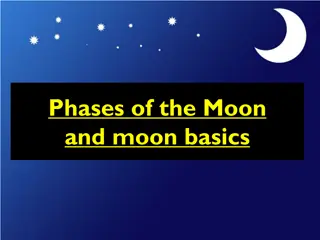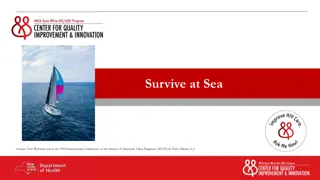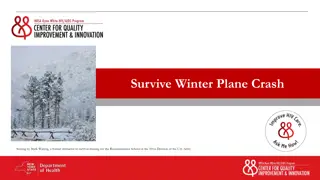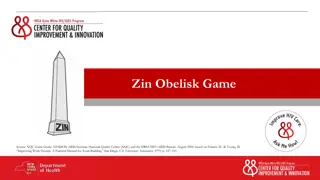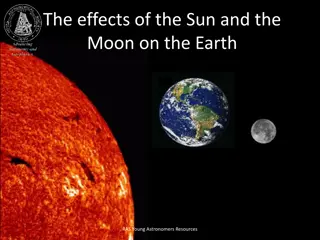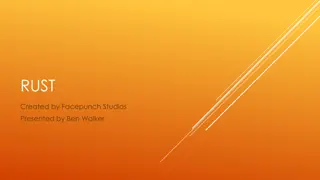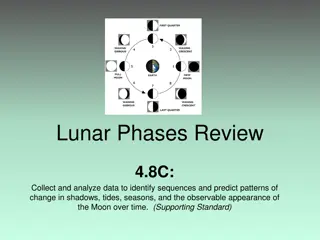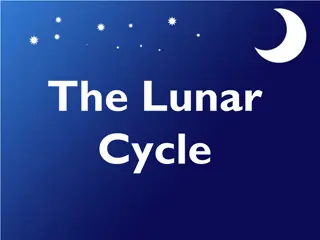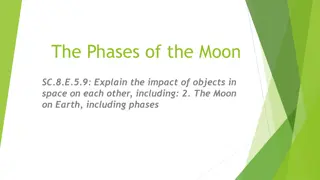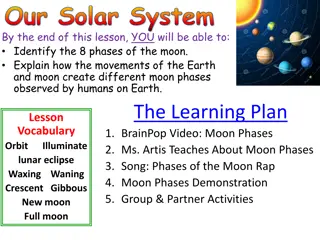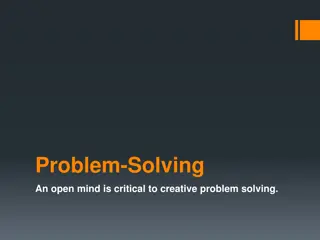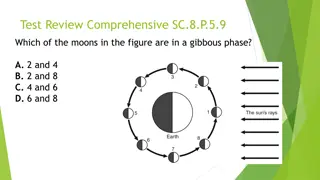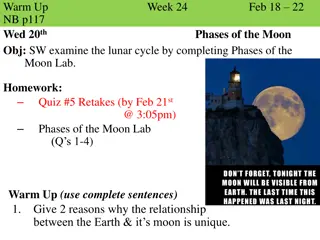Survive on the Moon - Team Problem Solving Game
Engage in the interactive game "Survive on the Moon" to understand how groups excel in solving complex challenges compared to individuals. Prioritize and collaborate with your team to rank 15 critical items for survival on the moon after a crash landing. Discussion and debrief sessions help draw parallels to real-life scenarios like HIV care, emphasizing teamwork and decision-making skills in a 20-30 minute session.
Download Presentation

Please find below an Image/Link to download the presentation.
The content on the website is provided AS IS for your information and personal use only. It may not be sold, licensed, or shared on other websites without obtaining consent from the author.If you encounter any issues during the download, it is possible that the publisher has removed the file from their server.
You are allowed to download the files provided on this website for personal or commercial use, subject to the condition that they are used lawfully. All files are the property of their respective owners.
The content on the website is provided AS IS for your information and personal use only. It may not be sold, licensed, or shared on other websites without obtaining consent from the author.
E N D
Presentation Transcript
Survive on the Moon Source: July 1999 issue of the NightTimes
Overview Game: Survive on the Moon Type of Game: A team problem solving game that emphasizes prioritization and collaboration. Length: 20-30 minutes Target Audience: Staff, quality improvement team members, people with HIV, and anyone else who are part of an improvement team. Learning Objectives Learn about how groups outperform individuals when solving complex challenges. Engage participants in a creative way to demonstrate the importance of team problem solving. Demonstrate the importance of collaboration. Learn how to prioritize and find consensus among team members of a group. Agenda 1. Setting the stage for the interactive exercise. 2. Playing the Survive on the Moon game. 3. Debrief and discussion on what lessons learned are and how they apply to HIV care. 4. Feedback and close. For more information | Check out the CQII Virtual Game Guide (2021) at www.CQII.org, including additional games, resources and the corresponding facilitator guide 2
Overview: Survive on the Moon Introduction to NASA Game Scenario Individual Ranking Group Discussion and Ranking Debriefing 3
NASA Game Scenario You are a member of a space crew originally scheduled to rendezvous with a mother ship on the lighted surface of the moon. However, due to mechanical difficulties, your ship was forced to land at a spot some 200 miles from the rendezvous point. During reentry and landing, much of the equipment aboard was damaged and, since survival depends on reaching the mother ship, the most critical items available must be chosen for the 200-mile trip. Below are listed the 15 items left intact and undamaged after landing. Your task is to rank order them in terms of their importance for your crew in allowing them to reach the rendezvous point. 4
Recovered Items Box of matches Food concentrate 50 feet of nylon rope Parachute silk Portable heating unit Two .45 caliber pistols One case of dehydrated milk Two 100 lb. tanks of oxygen Stellar map Self-inflating life raft Magnetic compass 5 gallons of water Signal flares First aid kit, including injection needle Solar-powered FM receiver- transmitter 5
Individual Ranking: 3 minutes What are the most important items? Using the Reporting Form, place the number 1 by the most important item, the number 2 by the second most important, and so on through number 15 for the least important. 6
Group Ranking: 20 minutes Form Groups: 8-10 individuals and assign one facilitator, one observer and a recorder. Discuss the ranking of the recovered items in the group and develop one ranking. Using the Reporting Form, place the number 1 by the most important item, the number 2 by the second most important, and so on through number 15 for the least important. 7
Scoring For each item, mark the number of points that your score differs from the NASA ranking, then add up all the points. Disregard plus or minus differences. The lower the total, the better your score. Example: Box of matches Individual Ranking 5 and NASA Ranking 10; count 5 points Score the individual and group rankings 8
Answers to the Survival on the Moon Exercise Item NASA Ranking NASA's Reasoning 15 Box of matches Virtually worthless -- there's no oxygen on the moon to sustain combustion 4 Food concentrate Efficient means of supplying energy requirements 6 50 feet of nylon rope Useful in scaling cliffs and tying injured together 8 Parachute silk Protection from the sun's rays 13 Portable heating unit Not needed unless on the dark side 11 Two .45 caliber pistols Possible means of self-propulsion 12 One case of dehydrated milk Bulkier duplication of food concentrate 1 Two 100 lb. tanks of oxygen Most pressing survival need (weight is not a factor since gravity is one-sixth of the Earth's -- each tank would weigh only about 17 lbs. on the moon) 3 Stellar map Primary means of navigation - star patterns appear essentially identical on the moon as on Earth 9 Self-inflating life raft CO2 bottle in military raft may be used for propulsion 9
Answers to the Survival on the Moon Exercise 14 Magnetic compass The magnetic field on the moon is not polarized, so it's worthless for navigation 2 5 gallons of water Needed for replacement of tremendous liquid loss on the light side 10 Signal flares Use as distress signal when the mother ship is sighted 7 First aid kit, including injection needle Needles connected to vials of vitamins, medicines, etc. will fit special aperture in NASA space suit 5 Solar-powered FM receiver- transmitter For communication with mother ship (but FM requires line-of-sight transmission and can only be used over short ranges) 10
Scoring 0 - 25 excellent (true survivor ) 26 - 32 good 33 - 45 average 46 - 55 fair 56 - 70 poor (suggests use of Earth-bound logic ) 71 - 112 very poor (you re one of the casualties of the space program!) 11
Debriefing Did you do better individually or as a team? What were the reasons that the individuals or the teams performed better? How did your team reach its decisions? Was everyone s input considered? How well did the group function as a team? What could be improved? How does this game apply to HIV care and/or your HIV program? 12
Reflections What are the lessons learned from this game? How can a group reach a common goal? Teamwork can produce better results than individual work, especially when faced with complex issues. Healthy team dynamics are critical to team work and development; the role of the group leaders/facilitators is important. It is important to take the time to obtain all team members views and perspectives. A benefit of teamwork is often the diversity in culture, opinion and experience. 13
Center for Quality Improvement & Innovation 212-417-4730 (phone) 212-417-4684 (fax) www.CQII.org Info@CQII.org This project is supported by the Health Resources and Services Administration (HRSA) of the U.S. Department of Health and Human Services (HHS) as part of an award totaling $1.5M. The contents are those of the author(s) and do not necessarily represent the official views of, nor an endorsement, by HRSA, HHS or the U.S. Government. 14



